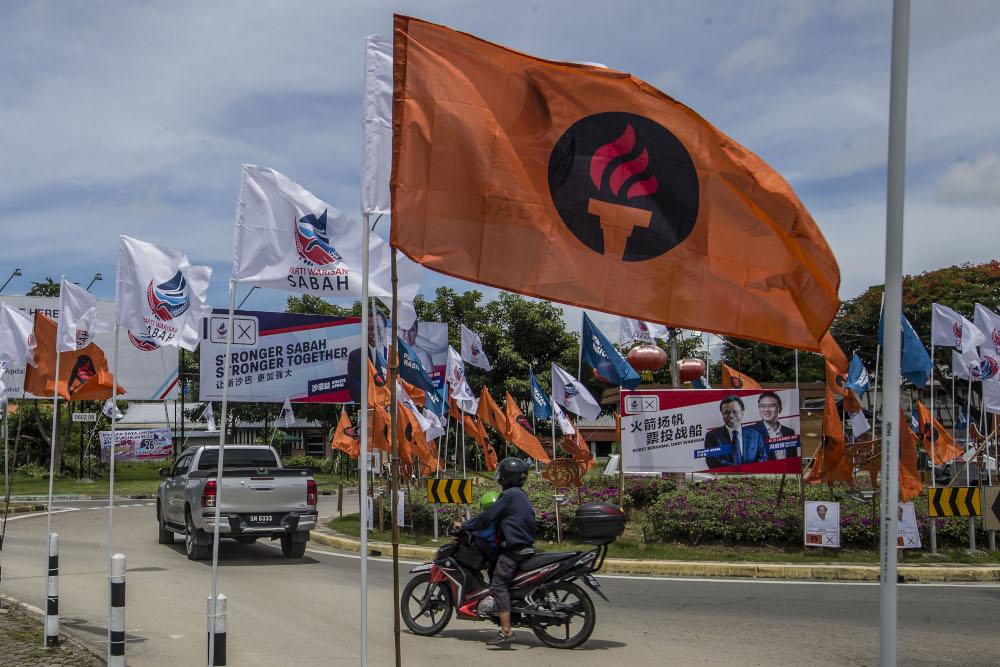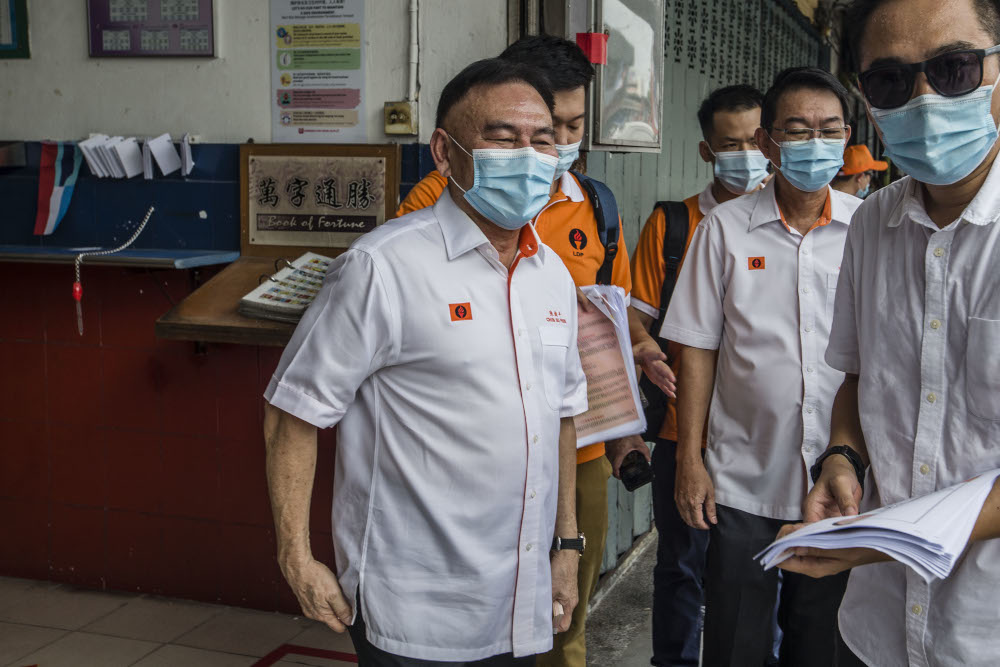KOTA KINABALU, Sept 15 — As the race for the Sabah state poll heats up, the Liberal Democratic Party (LDP) is confident that the legwork it has put in will propel the party into a position of dominance and cause an upset once the votes are counted.
Largely seen as a predominantly Chinese party, LDP president Datuk Chin Su Phin said it has made a concerted effort to diversify its approach and cater to all demographics while still championing the rights of Sabahans.
“Previously, in the government, we were all Chinese, but now we have changed and we are all diversified, while still fighting for the rights of Sabah,” Chin told Malay Mail when met while on a walkabout in Luyang here.
LDP is contesting 46 out of the 73 state seats up for grabs, a number that gives it a mathematical shot at governing the state should all its candidates emerge victorious, a feat Chin said the party is confident of achieving.
Chin explained LDP’s confidence stems from sentiments gauged through groundwork in both urban and interior Sabah, saying it showed Sabahans still preferred locally-based parties instead of those from the peninsula.
“When you go down to the rural areas, surprisingly, the Malays and the Kadazandusun Murut (KDM) say, this time, they want to vote for a locally-based party,” Chin said
He said this was why the party was contesting in 21 KDM-majority seats and in 13 more where there were sizable Malay voter pools.
Despite its image as a single-race party, Chin said LDP believes it still stands a better chance of securing the votes of local Bumiputera voters than peninsula parties, even in Chinese-minority seats, just by virtue of being a Sabah-based party.
LDP has also fielded 12 candidates in Chinese-majority seats.
The party president also pointed out how having more than one Malay-dominant party would split the Malay vote, and ultimately, play into LDP’s hands.
Chin said the obvious rifts and disputes over seat allocations among parties in Gabungan Rakyat Sabah could also be to the party’s benefit.
“They are all fighting with each other, which is good for us.
“And then you look at the Malay vote. It will definitely be split.
“You look at Umno and Bersatu. On the surface, they are working together, but underneath, we know they are actually fighting each other,” he claimed.
Former allies but never again
Given how it is contesting as an independent party not affiliated with either the incumbent Warisan government or the Opposition, Chin was asked who LDP would be willing to work with if it failed to win enough seats to form government on its own.
“Priority must go to a locally-based party and one with the same direction and shares our same view.
“PBS (Parti Bersatu Sabah) and STAR (Parti Solidariti Tanah Airku) are not on my mind,” he stressed.
Chin also confirmed the party would not be looking to work with Perikatan Nasional (PN) nor is it seeking to rekindle its erstwhile relationship with Barisan Nasional (BN).
“Maybe PCS (Parti Cinta Sabah), but it would depend on the quality of its candidates,” he added.
LDP became part of BN in 1991 but left the coalition after the historic 14th general election (GE14) in 2018 that saw a regime change in Malaysia for the first time in over 60 years. It has been without coalition partners ever since.
The party’s honorary life president Tan Sri Chong Kah Kiat, who once served as Sabah chief minister in 2001, is one of only three LDP candidates out of the 46 who has experience contesting polls, the rest being fresh faces.
Chong is contesting the state seat of Inanam where a 10-cornered fight will take place.
It should be noted that LDP’s striking orange flags bearing its torch logo are among the more prominent party standards seen around Kota Kinabalu and its surrounding districts.
The flags were arguably among the first to be erected around the city, with workers seen planting the orange party emblem as early as Sunday morning.
Borneo bloc
Expanding further on how LDP aims to steer the state should it emerge victorious next Saturday, Chin even floated the idea of a joint coalition between Sabah and Sarawak-based parties to form a united bloc.
Such a move, he said, could strengthen the influence of both Borneo states, and even place them in a more commanding position when forming the federal government.
“If Sabah and Sarawak unite, that is the strength we will have to decide the formation of the federal government.
“You look at the federal government now, the parties there, it’s too confusing; that is why we (Sabah and Sarawak) have to unite,” he said.
Sabahans will cast their votes for the state-wide election on September 26.
The poll also sees one of the highest number of candidates ever nominated: 447 nominees vying for only 73 state assembly seats.




















